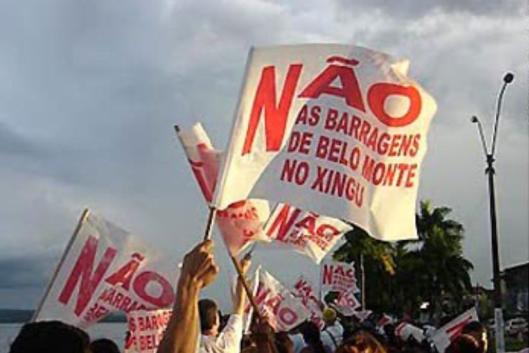Although they have succeeded in occupying greater space in society, women continue to suffer oppression, exploitation and violence. In countries like Brazil, the mass media – through newspapers, magazines and television – play a perverse role. In a world where neoliberal capitalism reigns and in which women’s bodies are transformed into mere merchandise, the mass media oblige women to conform to a certain conception of the “ideal” woman. Moreover, women’s bodies are used to sell everything from cleaning products to cars to particular brands of beer, and they are depicted as being forever at the disposal of men, for sex work. In this way, the media encourage this practice and transmit the idea that women have complete freedom, that is, that prostitution is a choice that they can take or leave at any time.
Behind this illusion, however, lies a very different reality. In the first place, while the large majority of sex workers are in fact women, it is usually men who control them, within a patriarchal society. In the second place, most of the women – of all ages – who enter into prostitution are poor, and they turn to it as a means of survival in a world that denies them other opportunities. Violence, rape and physical assault, as well as theft and health problems, are very common.
The sexual exploitation of women is a reality that occurs not only in big cities, but also in the vicinity of large-scale projects in the Brazilian Amazon, such as the Belo Monte mega-dam (see http://wrm.org.uy/articles-
section2/brazil-belo-monte-an-
Women from the Brazilian Movement of People Affected by Dams (MAB) – a member organization of La Via Campesina – comment on the situation in the new video, “Nosso corpo nos pertence” (Our Bodies Belong to Us), produced by SOF, a Brazilian feminist NGO. According to Elisa Estronioli, “As MAB studied the violation of the rights of people affected by dams in greater depth, it discovered that when dams are being constructed, there is an increase in the violation of the human rights of women. And one of the forms of rights violation is in fact prostitution. (…) A dam like Belo Monte – where there are currently, at the high point of its construction, 28,000 workers, most of them men – is like a time bomb. The structure is highly militarized, marked by a great deal of oppression, a great deal of tension among the workers, and so women’s bodies, through prostitution, are used as a mechanism to pacify the mood of the workers.”
Danila Lorenz commented, “When the workers go there to work, they are given a type of vouchers, credits, that they can spend in the local market, and that local market includes prostitution.” Elisa added that “in Belo Monte, for example, there are brothels that Norte Energia claims to be unaware of, but they are at the entry to the construction site, inside the territory that was expropriated for the construction of the dam, and anyone who walks by there, on the way to the work site, can see that they are places of prostitution.”
However, on many occasions, when women who are subjected to this sexual exploitation are offered a means to denounce the situation, they are coerced or threatened into denying what is going on. According to Marinete Lima of MAB, “In our work with the women we face a major challenge in making them aware that they are not merchandise, and that we, as women, have the right to say no to this capitalist system, to this system of dams and projects that supposedly bring progress. But we don’t want this kind of progress. And so we, as women from MAB, face this challenge, of organizing ourselves as women and claiming our right to say no to these dams.”
This article is based on the new video produced by SOF (Sempreviva Organização Feminista) of Brazil. The video can be seen (in Portuguese) here: target="_blank">
